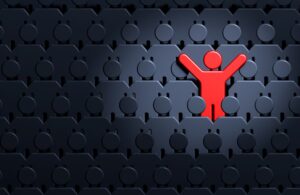Every leader often touts the desire to change the world. All forms of mission and vision statements can be summarized into a leader’s vision for world transformation. We cannot transform the world without understanding how the world works. One reason why individuals and leaders fail is because of their ignorance about how the world works and how humans function.
To change the world, one must change or control the behaviour and if possible, the habits of the inhabitants of the world. Without impacting the habits and behaviour of humans, our desire for global transformation is just an illusion. It is one thing to change an individual, it is another thing entirely to be effective at changing the behaviour and habits of a significant proportion of the people on the planet. How can this be done?
The leader must understand that humans are creatures of habit driven by meaning. It is the meanings that people have and hold that determines their behaviours upon the earth. Meanings are simply the way people define their experiences and the entities in their world. Every human is actually living out the meanings they have subscribed to. Meanings are not an easy thing to sell and offer, because by the time that people are adults, their inherent personal infrastructure of meaning has been set by the experiences of their past and they are often very difficult to change.
If the world cannot be changed without massive changes in human behaviour and behaviour cannot be changed without the adoption of meanings, what or who controls meaning in human lives? The answer is interpretation and interpreters. You see, the world can be divided into two distinct groups, implementers and interpreters. By the very nature of the world, there are very few interpreters but very many implementers.
Interpretation is the subtle power that controls our world. I call the force of interpretation subtle because it is seldom discerned by people but all of humanity right now is living out the particular interpretation that they have subscribed to. The subtle thing is often that interpreters don’t have to be around for their interpretation to be implemented. They don’t even have to be alive for their dictates to be lived out. Interpreters are the real power class.
The other day in my country, I was driving home and could see adherents of a particular spiritual order walk barefooted for long distances on their way to and from their houses despising and defying the risks of injury and infection in the process. Incomprehensible as this may sound to people, such individuals are actually living out the interpretation that has been handed down to them.
As I write, there is a global terrorism insurgency that seemingly more powerfully resourced nations are struggling to defeat. What the nations of the world do not understand is that they are basically fighting strongly held interpretations and world views. You can not defeat interpretations with military weapons. You can only defeat interpretation with superior interpretations.
Central to the formation of interpretation is the concept of truth. Truth, not just in its abstract sense but truth in its moral sense. This is why the interpreters’ major tools are doctrine and dogma. And once both can evolve into a systematic ideology, it is practically almost impossible to stop. Interpretation is therefore why the culture and behaviour of nations and institutions differ from one another.
What makes an interpreter powerful is because we often presume they should know better than us and we often accept their doctrines as dogmas to live by without thoroughly checking out their assertions and sources. Interpreters often deploy an overwhelming force of facts that implementers are often too lazy to check. This can be dangerous if the interpreter’s motive is to manipulate and destroy.
Interpretation is why clerics, educators, and even the media are very powerful. They are retailers of meaning because of their competencies in interpretation. By so doing, they massively influence the behaviour of a large portion of humanity and often alter the course of our world.
The power of interpretation and its capacity for world transformation or destruction calls for a two-fold responsibility. The first is societal and the second is individual. Society must develop robust certification and verification systems for anyone who is to occupy the office of an interpreter to ascertain that the content of their doctrines is not inimical to the welfare of society at large. Strong and fair regulatory frameworks should be created by society at large, to filter out radical ideas that can have a destructive effect on large portions of humanity.
Someone may say, ‘isn’t this going to take us back to the dark days of censorship and muzzling of the freedom of the individual and the press’? Not necessarily. People must be held accountable for the quality of truths they promote and its consequences on society. It is safer to destroy destructive ideas than to have destructive ideas wreck humanity.
I know these are not easy waters to navigate but nothing worthwhile is ever easy. As I look at the African religious context, I am scared of the destructive potential of the emergence of a certain ministerial class who have not been educated by any structured entity. I fear that like wolves, many unsuspecting and undiscerning people will be manipulated and destroyed. As it is for the religious, so it is for the societal. I am concerned that the standards of admittance set out for African leaders is very low. Society is likely to pay for this. Political offices can easily go to the highest financial bidder in spite of their lack of preparation.
Secondly, the power of interpretation places a responsibility on us individually, because oftentimes, the failure of society to discharge her regulatory duties makes individuals vulnerable to errors and manipulation. We personally must not accept any interpreter’s word for it. The Berean nobility of old must be fulfilled in us and extended to every facet of our lives. We must refuse to conform to what we have not confirmed. We must be rigorous in checking the facts presented to us, trusting no interpreter to have our best interests at heart. Most of all, we must choose to apply ourselves to truths and not just mere facts.
Lastly, those of us who occupy the office of interpreters must be robust in our consideration of issues and act in the best interest of society at large. We must understand that our personal errors often become magnified in society and must choose to adhere to a strict code of conduct and honour. If society, individuals and interpreters play their respective roles effectively, our world will be a safer place to dwell in.




Comments
Powerful, instructive and energetic
Powerful, educative and informative.
Simply instructive